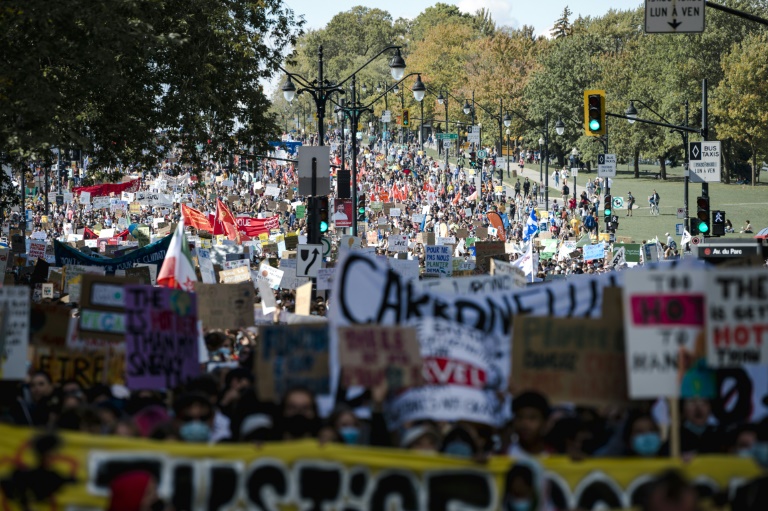Energy exporter Canada on Monday promised tough action against methane, a major contributor to climate change, as momentum builds for an ambitious global deal in Glasgow next month.
Twenty-four more nations pledged action against methane in a virtual meeting led by the United States and the European Union, which earlier announced a joint initiative on the potent gas.
Canada will aim to reduce methane from its oil and gas sector by at least 75 percent by 2030 from 2012 levels, becoming the first country to back a goal by the International Energy Agency, Environment Minister Jonathan Wilkinson said.
“A 75 percent target is an important goal, and we encourage other oil- and gas-producing nations to adopt it,” he said.
“As we like to say in Canada, we certainly get it.”
The methane promise is in line with promises by Prime Minister Justin Trudeau as he won a third term in elections last month.
Wilkinson said the methane effort was part of Canada’s overall goal of reducing greenhouse gas emissions by 40-45 percent by 2030 from 2005 levels — a target announced in April by Trudeau that is less ambitious than that of much of the developed world.
Methane, emitted by oil and gas production and agriculture, spends less time in the atmosphere than carbon dioxide but is far more potent and is seen as a key area where the world can take action.
A joint initiative launched last month by the United States and European Union called for global methane reductions of 30 percent by 2030 from 2020 levels.
At Monday’s meeting, philanthropic institutions — including that of former New York mayor Mike Bloomberg — together promised $223 million to boost efforts on reducing methane.
The COP26 summit in Glasgow aims to raise the global fight on climate change as evidence mounts that the world is off track, with the planet setting record temperatures and experiencing increasingly severe fires and storms.
“It’s clear that we’re in a race against time. It is far, far, far more expensive to be dealing with the problems of the climate crisis over time than it is to deal with it now,” said John Kerry, the US climate envoy.
“Hopefully that all changes in the next weeks,” he said, adding he was “encouraged” by recent promises.









